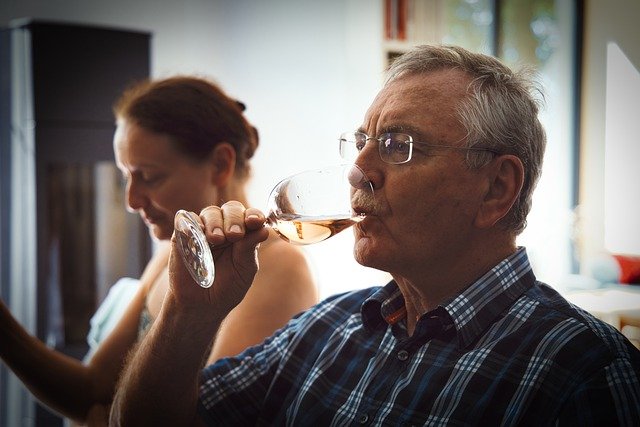When someone thinks of binge drinking, they probably imagine a college-aged person drinking at parties or with friends. However, binge drinking is not just a concern for young people. Seniors also struggle with binge drinking. The risk for binge-drinking patterns, and the consequences they face may be even more severe.
What Is Binge Drinking?
Binge drinking is defined as a drinking pattern that brings the blood alcohol concentration to 0.08% or higher. This typically involves having five or more drinks in one sitting for men, and four or more drinks in one sitting for women. Binge drinking can be a sign of alcohol use disorder, especially if someone continues to drink despite negative consequences.
According to the Centers for Disease Control and Prevention (CDC), one in six American adults binge drinks four times each month. Binge drinking is more common for people ages 18 to 34, but it is a concern for all ages. New research shows that binge drinking is on the rise in older individuals. More than 10% of people over age 65 reported binge drinking in the past month.
Binge Drinking Risk Factors in Seniors
Certain life events may increase an older person’s risk for binge drinking. Men who are separated or divorced were at a higher risk for binge drinking, according to one study. Our chances of experiencing grief and loss also increase as we get older. Elderly individuals may be at a greater risk for depression and other mental health concerns due to the loss of a loved one or partner. This can lead to behaviors consistent with alcohol use disorder.
Certain lifestyle factors can also contribute to an older person’s risk for binge-drinking habits. For example, the same study referenced in the previous paragraph found that those who use tobacco or marijuana are more likely to binge drink.
A personal or family history of alcohol use disorder or other mental health concerns may also increase an older individual’s risk for binge drinking.
Consequences of Binge Drinking
Older individuals are often on medications that can intensify the effects of alcohol. Certain medications can slow down the body’s ability to break down alcohol, resulting in someone staying intoxicated for longer. Blood thinners such as aspirin cause the body to absorb alcohol faster, resulting in someone getting intoxicated more quickly.
Binge drinking can also worsen conditions such as diabetes, heart disease, liver disease, and digestive problems. While people who have a chronic condition are less likely to binge drink, one study showed that 41% of senior respondents with high blood pressure, 23% with cardiovascular disease, and 18% with diabetes reported binge drinking in the past month.
Heavy drinking can also increase someone’s risk of injury in incidents such as crashes, falls, or burns. Elderly individuals have a more difficult time recovering from physical injuries, and those who binge drink might be more prone to chronic pain.
Binge drinking can also cause mood and memory problems. Some seniors may already struggle with cognitive impairment due to aging, dementia, or Alzheimer’s disease. Heavy drinking can worsen symptoms and lead to increased confusion and irritability.
Limiting Binge Drinking Risks in Seniors
As we get older, our ability to tolerate alcohol begins to decrease. The National Institute on Alcohol Abuse and Alcoholism recommends that older individuals avoid drinking or limit their daily consumption to two drinks or less for men, and one drink or less for women.
Certain older adults should drink even less or not at all. This includes those who:
- Take medications such as aspirin, sleeping pills, anxiety medication, or pain medication
- Have health problems such as diabetes, high blood pressure, congestive heart failure, liver problems, or osteoporosis
- Have mood disorders
- Have memory problems
Elderly individuals who continue to drink despite negative consequences, or who have difficulty stopping even though they want to, may be struggling with a substance use disorder. Substance use disorders are mental health disorders that require treatment from a professional. If you or someone you know is struggling with binge drinking, help is available.
About Duffy’s Napa Valley Rehab
Duffy’s Napa Valley Rehab is located in historic Calistoga, California, on 23 acres of the beautiful Napa Valley. At our facility, we offer treatment for substance use disorders involving alcohol or other drugs, as well as potential co-occurring mental health concerns. We offer a wide range of services such as detox, medication-assisted treatment (MAT), residential care, and continuing care. Our team of addiction specialists and counselors work closely with each person to ensure that they receive the customized care they need for lasting recovery.






